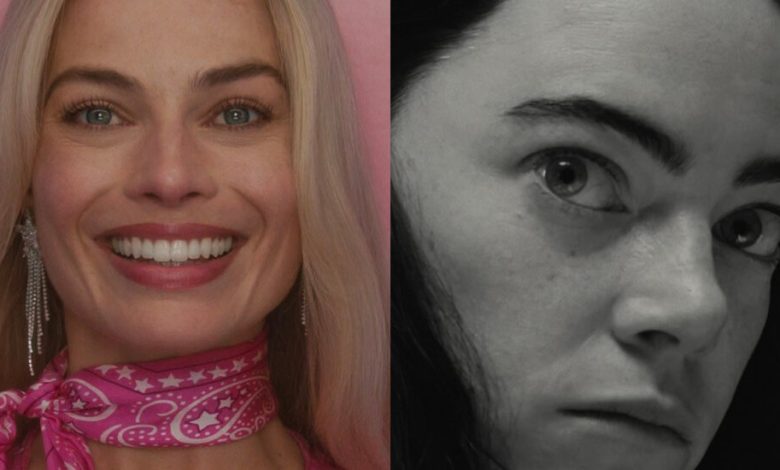Barbie and Bella: Two Different Shades of Female Liberation

One takes place in a bright, plastic world where everything is coated in pink. The other takes place in an isolated black-and-white world that transforms, “Wizard of Oz” style, into a flashy, steampunk domain.
Though they’re very different stylistically, the Oscar-nominated films “Barbie” and “Poor Things” are both modern feminist fables about the making of a woman. Both reframe the common stops on the coming-of-age story: The protagonists begin in a state of childlike innocence, then, each in her own way, pass through motherhood, ending in a place where they are both and neither mother and daughter, creating their autonomy from the place between these two states of womanhood.
“Poor Things,” from the director Yorgos Lanthimos, takes its concept from Mary Shelley’s “Frankenstein,” in which a genius scientist jigsaws together and gives life to a monster who wreaks havoc while on an existential quest for knowledge. Here the Dr. Frankenstein is Godwin Baxter (Willem Dafoe), and his monstrous creation is Bella (Emma Stone), a woman he has resurrected.
At first Bella babbles and stumbles around like a precocious toddler, learning to speak and move by imitating the adults around her. She then goes through a kind of adolescence beginning the moment she discovers sexual pleasure. Her sexual curiosity spurs larger curiosities about the world.
Through sex she discovers what she wants, and claims her agency to pursue it. She travels the world with a spineless cad, Duncan Wedderburn (Mark Ruffalo), enjoying the rampant sex they have along the way. She’s fiercely independent the whole time, even though she has traveled far from the bleak, isolated black-and-white world of the Baxter home, where she was hidden away and always under supervision, into a colorful, wild world that appears as awe-inspiring and unfamiliar to her as it may to the audience, who find fresh new versions of cities like Lisbon and Paris.
It’s when Bella decides to work in a Paris brothel that she experiences the most freedom. She goes to lectures, political meetings and reads voraciously while earning her keep through sex. She’s no longer simply the naïve daughter, seeing the world through Godwin’s warnings and advice. And she’s not the partner for Duncan, forced to tolerate his tantrums and fits in exchange for access to the larger world.
